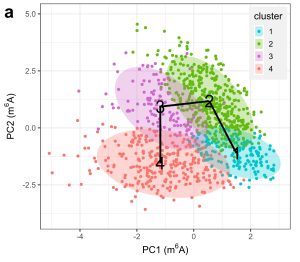03 Aug 2023
Throughout history, technology has not only shaped how people live and work, but also managed to penetrate the realm of high politics by redefining the relationships between governments.
For proof, one needs look no further than artificial intelligence (AI), a rapidly improving technology that has been all the rage for the past several years. The technology has brought China and countries belonging to the Association of Southeast Asian Nations (ASEAN) closer as they collaborated on multiple AI-related projects and made significant contributions to advances in the field.
China as an AI superpower
Artificial intelligence broadly refers to a machine’s ability to perform the cognitive functions we usually associate with human minds. In the past decade, as applications of AI have continued to expand and improve, the technology has shifted from an emerging area of computing to one that is ubiquitous in people’s lives and critical to companies hoping to stay ahead of the game.
Meanwhile, numerous nations have been investing heavily in improving their AI research and development. In this pursuit of AI prowess, China and the US have emerged as global leaders.
In China’s quest for AI supremacy, the “New Generation Artificial Intelligence Development Plan”, a top-down institutional framework released by the State Council in 2017, has been crucial. With it, the Chinese government announced a goal of becoming the world’s AI superpower by 2030 and laid out a three-step plan: First, it will keep pace with all leading AI technology, and its application in general, by 2020. Part two is to make significant breakthroughs by 2025, which is intended to lead to the third stage of the plan — the establishment of China as the world leader in the AI field by 2030.
Since then, there has been a tremendous increase in AI research productivity and quality from China, said Dr Hong Seng Gan, an Associate Professor at the School of AI and Advanced Computing, Xi’an Jiaotong-Liverpool University Entrepreneur College (Taicang). According to the latest AI Index Report, an annual publication from Stanford University that tracks and evaluates AI progress through a wide range of metrics, China accounted for an impressive 39.78% of the global AI journal publications and 29.07% of the world AI journal citations in 2021, consistently outpacing other countries in both areas.
“AI research productivity in China has shown a steady increase since 2010, whereas other tech superpowers have been gradually slipping,” said Dr Gan. “This sharp contrast suggests that China is reaping the success of its aggressive spending in AI research.”
Tech cooperation can bring China and ASEAN closer together
Situated at the geographical centre of the US-Chinese struggle for global impact, Southeast Asia has long been regarded as a region of primary importance in the eyes of Chinese officials. “Historical bond, geographical proximity, and cross-cultural interaction between both regions have created an interdependent symbiotic ecosystem,” explained Dr Gan.
As the largest trade partner of the ASEAN member states for the last 13 years, China has stepped up its engagement in the region in recent years via an array of multilateral and regional arrangements. Among them, the Belt and Road Initiative, launched by President Xi Jinping in 2013 as part of the “Major Country Diplomacy” strategy, has led to numerous mega investments across ASEAN countries, including Malaysia, Indonesia, Thailand, Cambodia, and Vietnam.
Although initial investments were mostly in the form of physical projects such as infrastructure building, China has been increasingly pushing for tech cooperation in the past few years, especially after the Covid-19 pandemic, which has sped up digital transformation in various industries in the region.
As reported by the Wall Street Journal, in addition to Alibaba, Chinese tech giants like Tencent and Huawei are also planning to invest hundreds of millions of dollars in building data centres in Southeast Asia, which will lay a foundation for AI projects in the coming years.
In Malaysia, Chinese internet behemoth Alibaba Group has already worked with the local government to build the Malaysian Digital Free Trade Zone (DFTZ), an Alibaba-inspired OneTouch e-services platform that utilises “cloud-based technology, fintech, and blockchain,” setting a blueprint for future AI collaborations between the two nations.
AI can bring China-ASEAN relations to the next level
As China-ASEAN collaborations yield results in areas such as cloud services, cybersecurity, and information and communications technology, a number of AI-themed projects have also begun.
In the southern province of Guangxi, there’s the China-ASEAN (Huawei) AI Innovation Center, which has served 280 AI-related companies and started 119 projects on AI cooperation. In February, Huawei — in collaboration with the National University of Singapore Business Analytics Centre — launched an innovation challenge in Singapore, where students from local universities and polytechnics are given the chance to test their skills in a competition that seeks to nurture AI talents.
On 13 July, the first Forum on China-ASEAN Artificial Intelligence Cooperation was held in Nanning, Guangxi province. Attended by over 300 governmental officials, business leaders, and scientists, the conference — with the theme of “AI for good and for all” — saw the participants gather to explore business opportunities in AI-related fields and further AI collaboration between China and ASEAN countries.
But more can be done, Dr Gan said. For less developed ASEAN member states such as Laos and Myanmar, China can help accelerate their digital transformation by boosting their internet penetration rates. “Low internet network coverage hinders the spread of knowledge and e-commerce business opportunities that subsequently induce AI creativity,” he noted.
For ASEAN countries that already have a solid foundation to build on, such as Malaysia, Singapore, and the Philippines, China can help with their AI developments and adoption in related sectors like e-commerce, finance, and smart cities, through both business collaborations and educational activities.
By Jiayun Feng
This article is republished from The China Project. Read the original article: https://thechinaproject.com/2023/07/27/ai-is-the-future-of-the-china-asean-tech-partnership/
03 Aug 2023
RELATED NEWS

The next frontier for mental health support: VR and AI powered chatbots
What comes to mind when you hear the word psychotherapy? Chances are that like most people, you would think of sitting on a couch across from a soft-spoken t...
Learn more

Building a green future in China
With global temperatures soaring as a result of high levels of carbon emissions from industrial and other sources, the world, right now, is facing an env...
Learn more








